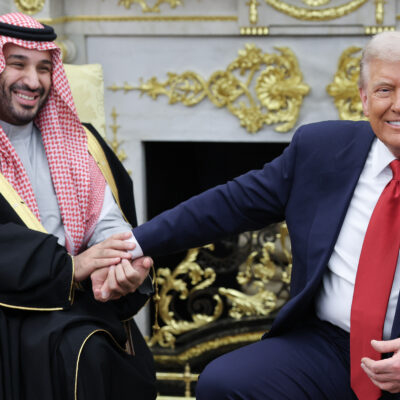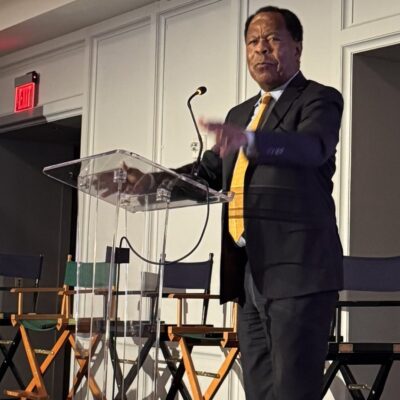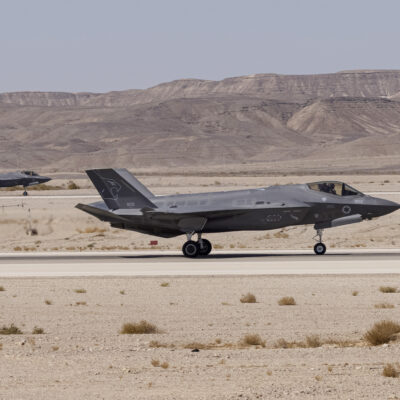Kafe Knesset for April 6
Sign up for the Daily Kickoff newsletter to read Kafe Knesset in your inbox each day
As news of a second chemical attack in Syria came out today, security cabinet ministers received a summon for their upcoming Sunday meeting, which will be dedicated to the implications of the recent tragic events in the civil war across the border. The ongoing atrocities have sparked a new wave of politicial empathy in recent days, with cross spectrum calls for increased humanitarian action, as well as strategic observations and demands for a strong international reaction. Dozens of politicians from left and right issued strong emotional statements in recent days, citing the Jewish duty to save endangered people .
Prime Minister Netanyahu himself strongly condemned the tragedy and called on the world to complete the removal of the chemical arsenal from Syria. “The pictures should rattle every human being. It’s something we can not accept. We will increase our efforts to continue helping the children, helping the survivors, helping the citizens” he said on Tuesday.
However, there is an existing official government plan to absorb 100 children orphans from embattled Syria, which has been stalled on Netanyahus desk for weeks. The plan, originated by the Jewish Agency and the immigration bureau, was adopted by Interior minister Aryeh Deri in January, but it has been waiting for the PM’s green light ever since, and for a directive to the Foreign Ministry to move forward and approach international aid and refugee agencies to coordinate the effort. The PM’s office did not respond to Kafe Knesset‘s inquiry on the matter, and have been avoiding questions if the plan has been aborted or explain the cause for the delay.
The IDF and Israeli hospitals have taken a major part in helping and treating wounded Syrians, but many are starting to feel that it’s not enough. Inside the security cabinet there have been strong calls for an increased humanitarian action that would demonstrate that Israel is not indifferent to what is happening on the other side of the border. “Israel must lead the world to put an end to the terrible slaughter,” Deri said in a statement this week. Finance Minister Moshe Kahlon added that Israel “must fulfill its moral responsibility and open its doors to children who are genocide victims,” and pledged to supply resources to fund any activities. Bayit Yehudi leader Naftali Bennett said he will propose to adopt a new approach to the civil war in Syria in the upcoming cabinet meeting. “As a member of the Jewish state’s Cabinet we have the duty to inspire the international community to stop this atrocity and not abandon women and children on the other side of the border”, Justice Minister Ayelet Shaked said earlier this week.
However, accepting Syrians refugees entails giving them a civic status, and could have implications on other immigrant or refugee groups living in Israel, and the plan also prompts objections in certain right wing and Ultra-Orthodox circles. Oren Hazan, the outspoken bad boy of Netanyahu’s Likud Party, tweeted yesterday: “A plan to absorb Syrian refugees? Have you forgotten that this is an enemy ?! As if we do not have enough trouble … People here must be confused or live in a Hollywood movie.”
The call for an Israeli humanitarian move was born on the opposition benches, back in September 2015, when the European migrant wave crisis broke. Opposition leader Isaac Herzog called on Netanyahu to admit Syrian refugees seeking for haven at the time, and Yesh Atid’s Elazar Stern wrote a letter to Netanyahu suggesting Israeli shelter for a limited number of Syrian refugees. Last December, after the Aleppo massacre, Zionist Union MK Itzik Shmuli wrote another letter to the PM raising the topic, and this week, his party colleague Ayelet Nahmias Verbin asked the PM to triple the amount of refugees Israel would accept and speed up the process.
“”Netanyahu cannot be the first Israeli PM to turn his back on such a disaster happening behind our fence instead of following Menachem Begin’s footsteps who gave shelter to Vietnamese families 30 years ago,” Verbin told Kafe Knesset. “My sleep is wandering from seeing the terrible pictures from Syria, I don’t understand how Netanyahu, who can actually do something about it and no doubt will get support from all sides of the aisle, didn’t come up with immediate steps to implement the initial plan. He should be standing in front of the world and say, ‘These children are not our enemies, we need to give them hope.’ As Jews and also as Israelis we must stand by the innocent. It is our duty. Instead, the plan is buried. Instead, there is silence.”
Crickets from the Joint List: Often, Joint Arab List MKs stir up controversy with the things that they say, but today the storm is over what they’re not saying: Most of them will not outright condemn Assad. MK Ahmed Tibi was one of the first Israeli politicians to speak out against the gas attack, and his condemnation was unequivocal, as was that of MK Dov Henin, the one Jewish MK in the Joint List. But others have had surprisingly little to say on the subject, and when they do say something, it’s usually that Israel is just as bad or worse than Assad. MK Haneen Zoabi, for example, said that if Israelis are war criminals, and that if Assad tried to fight for the Golan, Israel would probably gas Syrians. In the Knesset yesterday, in a session called during the recess, Joint List chairman Ayman Odeh said that he is pained by all children who are killed, whether in Syria or in Gaza. Odeh is not only the head of the Joint List, which is made up of several smaller parties; he leads Hadash, a mostly-Arab communist party. In December, Hadash’s Facebook page featured a post that seemed to support Assad in December, praising the “unification of Aleppo.” However, Odeh somewhat disavowed that interpretation of the post, saying the party opposes the radical Islamic elements opposing the Syrian regime, but that Assad is an authoritarian, and they support a popular uprising against him.






